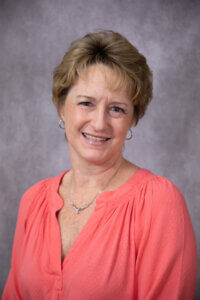| May 2023 FloridAgriculture eNewsletter
AgWATCH is an update of legislative issues affecting agriculture.
Sine Die |
| On Friday, May 5th, at eleven o’clock in the morning, the Sergeants dropped the handkerchiefs and the 2023 Legislative Session celebrated sine die! While this year’s legislative session certainly saw its fair share of controversial and headline worthy legislation, the Florida House and Senate worked tirelessly to pass good bills and a robust budget that will positively impact our industry and the state as a whole. |
| The Budget |
| Weighing in at the largest in Florida’s history, this year’s budget boasts $117 billion, with a large portion of that aiding the agriculture industry. In an effort to make a positive impact on the environment and protect our industry for years to come, $100 million was allocated to the Rural and Family Lands Program, which supports the purchase of conservation easements to protect agricultural land from development. IFAS received $3.8 million for workload, $6.2 million for BMP research, and $10.9 million for the Center for Artificial Intelligence. Additionally, $30 million was allocated for citrus research. |
| Tax Package |
| The legislature spent the last several weeks of session negotiating a sweeping tax overhaul which included a sales tax exemption for materials used to construct or repair permanent or temporary fencing to contain, confine, or process cattle. Most notably, however, the package prohibits local municipalities from levying special assessments on agricultural land. This piece of legislation was a priority of FFBF this session. To view additional information on the bill, click here. |
| Senate Bill 1184 / House Bill 1343 |
| On day 60 of session, SB 1184 / HB 1343 died in Senate messages. This bill aimed to make positive changes for the construction of new farm worker housing, but unfortunately the legislature ran out of time while negotiating the nuances of the bill. We want to thank Representative Kaley Tuck and Senator Jay Collins for their hard work on the bill. The House passed the bill unanimously on the floor but fell short in the Senate. We anticipate continuing this good work next year. To view additional information on the bill, click here. |
| Senate Bill 1164 / House Bill 1279 |
| The Department of Agriculture Package Bill passed on the House and Senate floors unanimously. This bill is a multi-faceted, department/industry wide package that includes the Farm TEAM Card. This card is meant to provide a more streamlined process for producers to receive the agricultural sales tax exemptions they are given in our state. This bill is on its way to the Governor’s desk, and we will be providing more information soon on how to apply for your own Farm TEAM Card. To view additional information on the bill, click here. |
| Senate Bill 1718 / House Bill 1617 |
| Florida Farm Bureau was instrumental in ensuring that that the implementation of the federal E-verify system was prospective, applying only to new hires after July 1, 2023. Additionally, the bill exempted private employers with 24 or less employees from having to use the federal E-Verify system when hiring workers and we substantially lessened the punitive side of the original bill that was presented. To view additional information on the bill, click here. |

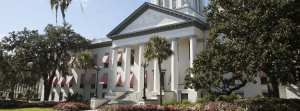
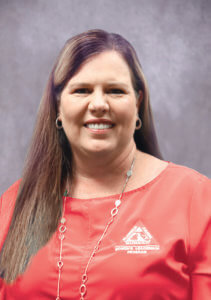
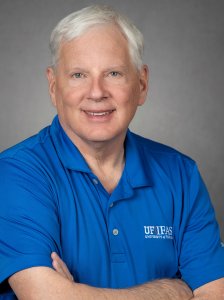 By J. Scott Angle
By J. Scott Angle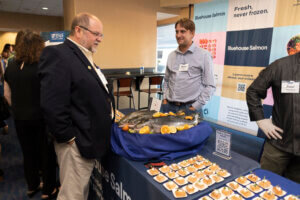
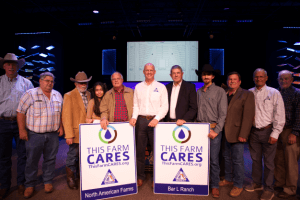 Practicing sustainability is a way of life for Florida farmers and ranchers. More than 10 million acres are dedicated to agriculture. These lands provide environmental benefits such as preserving the natural landscape and numerous ecosystem services. The careful stewardship of these lands contributes to clean air, water and provides wildlife habitat. Forests and rangeland support carbon sequestration, helping combat climate change.
Practicing sustainability is a way of life for Florida farmers and ranchers. More than 10 million acres are dedicated to agriculture. These lands provide environmental benefits such as preserving the natural landscape and numerous ecosystem services. The careful stewardship of these lands contributes to clean air, water and provides wildlife habitat. Forests and rangeland support carbon sequestration, helping combat climate change.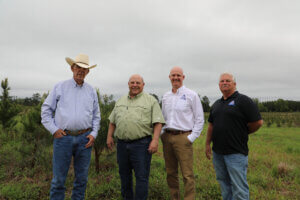 American Farm Bureau President, Zippy Duvall traveled to Washington and Jackson Counties March 28-29 to discuss issues that Florida producers are facing and to explore the diversity of farming in the area. On Tuesday, along with Florida Farm Bureau President Jeb Smith, President Duvall spent the morning learning about the process and benefits of silvopasture and he participated in a roundtable discussion with peanut and cotton producers over lunch. The next stop was a cattle ranch in Chipley, owned by Washington County Farm Bureau President George Fisher, and then to the Enviva Pellet Mill in Cottondale.
American Farm Bureau President, Zippy Duvall traveled to Washington and Jackson Counties March 28-29 to discuss issues that Florida producers are facing and to explore the diversity of farming in the area. On Tuesday, along with Florida Farm Bureau President Jeb Smith, President Duvall spent the morning learning about the process and benefits of silvopasture and he participated in a roundtable discussion with peanut and cotton producers over lunch. The next stop was a cattle ranch in Chipley, owned by Washington County Farm Bureau President George Fisher, and then to the Enviva Pellet Mill in Cottondale.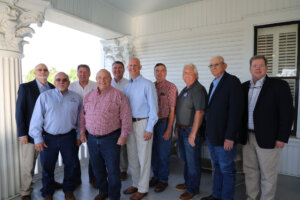 To finish up the day, President Duvall spoke at the Washington County Farm Bureau Annual Meeting. Topics of his address included the importance of the upcoming Farm Bill, challenges with labor and Waters of the US (WOTUS). President Duvall said that with there being 260 newly elected officials that have never voted on a Farm Bill, it is critical for agriculture to continue the pressure to pass a Farm Bill to protect the livelihood of farming and ranching.
To finish up the day, President Duvall spoke at the Washington County Farm Bureau Annual Meeting. Topics of his address included the importance of the upcoming Farm Bill, challenges with labor and Waters of the US (WOTUS). President Duvall said that with there being 260 newly elected officials that have never voted on a Farm Bill, it is critical for agriculture to continue the pressure to pass a Farm Bill to protect the livelihood of farming and ranching.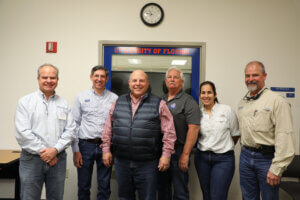 On Wednesday morning, President Duvall met with Farm Bureau leaders over breakfast to discuss the role county Farm Bureaus play in the legislative process. The next stop on day two was a visit to the UF/IFAS Peanut and Cattle Breeding Unit in Greenwood. The tour ended with a trip to Marianna where the group visited a Satsuma farm.
On Wednesday morning, President Duvall met with Farm Bureau leaders over breakfast to discuss the role county Farm Bureaus play in the legislative process. The next stop on day two was a visit to the UF/IFAS Peanut and Cattle Breeding Unit in Greenwood. The tour ended with a trip to Marianna where the group visited a Satsuma farm.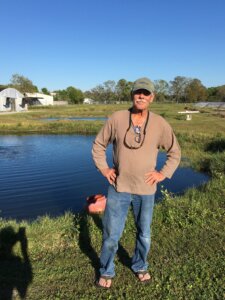 TAL started with Watson, a veterinarian, a wildlife specialist and a secretary. Over the years, the lab team grew to some 18 people between faculty, staff and students. All the while, Watson continued to serve the Advisory Committee, making many trips to Gainesville over the decades to visit the headquarters of both
TAL started with Watson, a veterinarian, a wildlife specialist and a secretary. Over the years, the lab team grew to some 18 people between faculty, staff and students. All the while, Watson continued to serve the Advisory Committee, making many trips to Gainesville over the decades to visit the headquarters of both 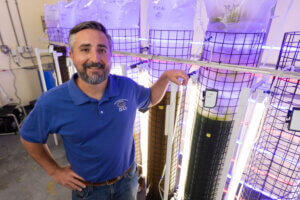
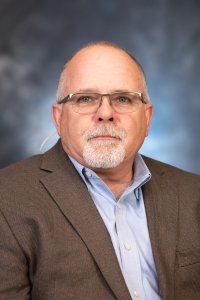
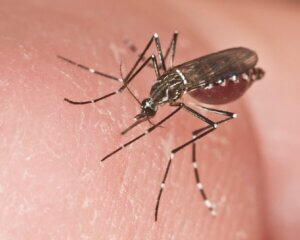 With hurricane season just around the corner, it’s time to start thinking about what can be done to minimize mosquito populations and protect Florida residents from harm.
With hurricane season just around the corner, it’s time to start thinking about what can be done to minimize mosquito populations and protect Florida residents from harm.